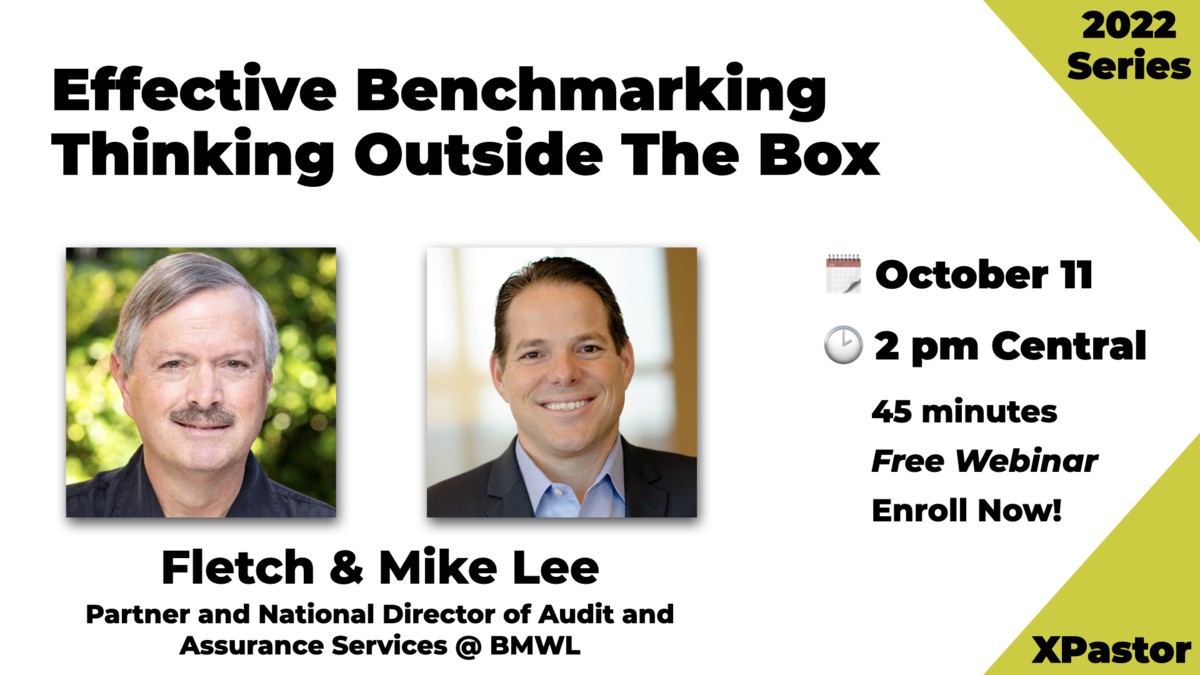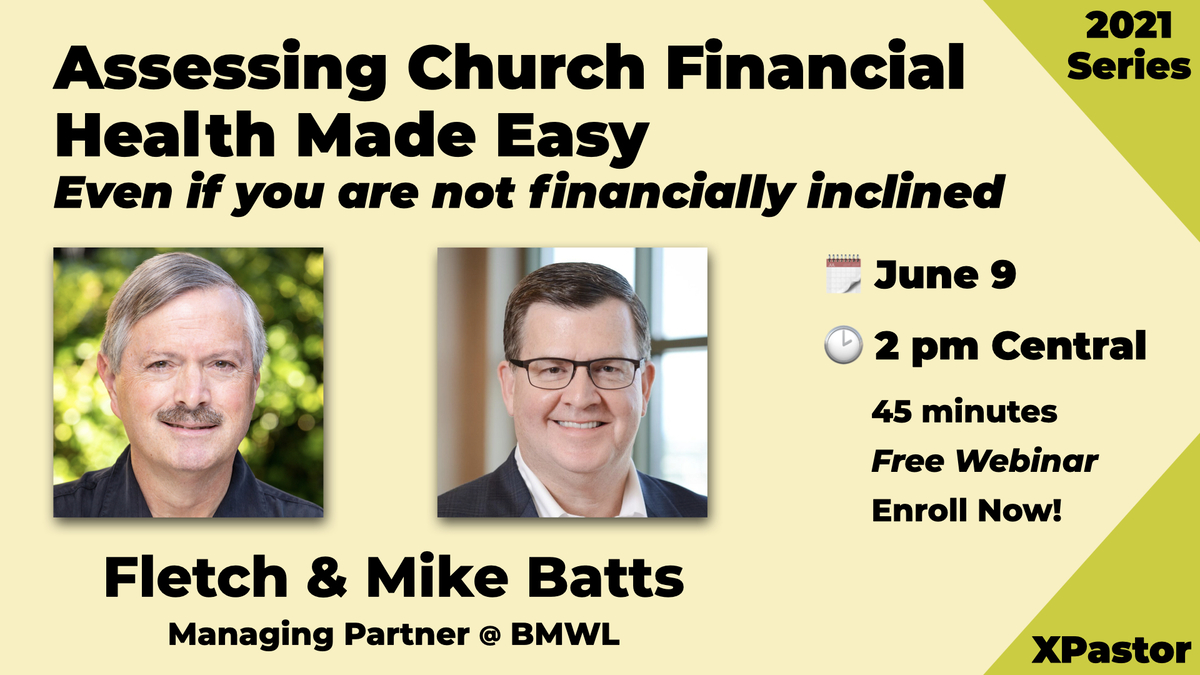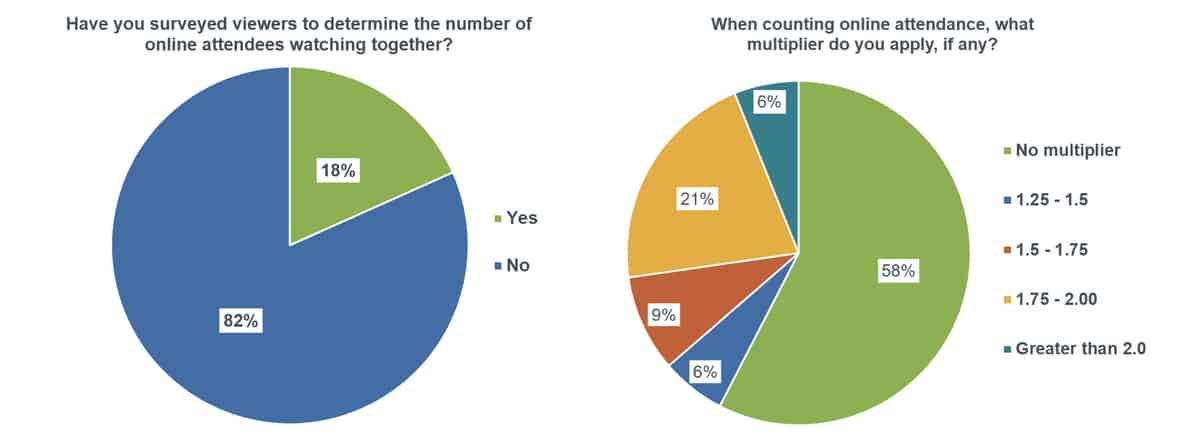A common, biblically-based theme in the church world is that parishioners should be good stewards of the money God has entrusted to them. Especially emphasized is the principle of Christians paying tithes and giving generously. However, stewardship not only applies to church members but also to churches themselves. In the same way that individuals are accountable for how they invest the resources God has given them, churches and ministries are responsible for how they steward the gifts that come into their storehouse.
First of all, I am a Christian layman who happens to be a businessman, not a pastor or a theologian. A lifelong involvement in church structure and finances includes a mother who has been a church secretary for over fifty years and a son as my pastor. Experience tells me that good businesses find ways to leverage assets that provide sustainable growth. In the church world it seems that “making disciples” of Jesus is the currency. The Scriptures clearly indicate that reproducing makes Heaven rejoice. For the church to accomplish its mission and fulfill its calling, all of its resources (including money) must be properly stewarded.
The objective here is not to lecture church and ministry leaders about structure, priorities or vision for their ministries. In fact, church boards, while responsible for financial oversight, should never attempt to “control” spending as they see fit. Instead, they should use their financial insight to help determine the best course of action for funding the God-given vision of their ministry leader(s). Recent experience has revealed many opportunities to leverage ministry resources (existing people, buildings and money) to achieve the particular vision God has given my pastor/son (not me) for the church he leads.
This document identifies seven principles that can further the impact and influence of a ministry interested in building the Kingdom of God. It attempts to show the importance of allocating financial resources in a way that is properly aligned with the mission, vision and values of a ministry.
So, here goes …
1. Prayer and Planning Go Together
Dr. Eugene Peterson gives a great commentary in The Conversations: The Message Bible with its Translator contrasting the ways in which the Israelites won the battles of Jericho and Ai. For example, God miraculously collapsed some very thick walls to allow Joshua’s army to overtake Jericho. However, after dealing with Achan’s sin, God gave Joshua an ingenious plan to defeat Ai.
Sometimes God supernaturally provides financial resources to fund ministry; other times He gives a plan. Similarly, God gave Joseph a miraculous interpretation of Pharaoh’s dream that led to Joseph being freed from prison; however, it was Joseph’s plan for dealing with the coming famine that brought him promotion.
Someone once said that God blesses order and not chaos. It seems reasonable that God is more likely to bless a ministry that proactively and carefully plans the use of their money than one that just spends as funds come in.
No biblical rules prevent a plan from being aggressive and optimistic, within reason. Faith should not be excluded from the equation, because it is essential. However, unless God has audibly informed you that someone is about to donate a large, unexpected sum of money to the church, it may not be prudent to include that possibility into your ministry budget. Now things like this happen occasionally, but they generally happen to ministries operated like the man in the Parable of the Talents who was given five talents and leveraged them into five additional talents. Good stewards enjoy God’s favor (faithful over a little—ruler over much).
So, if God has given you a vision of a much larger ministry or even if someone has prophesied to you about great things in your future, be a faithful steward of what you already have. About twenty years passed from the time Joseph dreamed of his brothers bowing to him until it actually happened. In the intervening years, Joseph endured much hardship, growing, stewarding and praying.
2. Visions Need Resources
Bill Hybels, Senior Pastor of Willow Creek Church in Chicago, tells an interesting story in his book, Courageous Leadership, of how his church struggled financially in its early years. Even though it was growing successfully, money was not keeping up with growth. After carrying this burden alone for some time, Hybels finally decided he could not take it anymore and announced the same to his congregation. Their response was, “Why didn’t you tell us?” That was the end of the church’s financial struggles.
Churches need money for growth. The two predominant reasons for the failure of start-up businesses are under-capitalization and mismanagement. In other words, there is not enough money to fund growth until the business is self-sustaining, or management poorly stewards the available capital. Many church plants fail for one or both of the same reasons. Ministries spiritually spin their wheels because of poor stewardship of money that handicaps their potential.
You may say, “My church is doing the best it can with the money we have.” Let me give you an example from my personal business experience. A number of years ago, a gentleman called on me with the pitch that he could save my business a considerable amount of operating expense. For his services, all he wanted was half of the savings he would generate for the first year. Well, I thought that I ran a pretty tight ship. Was I ever embarrassed! Before he was through, this man saved me thousands of dollars by reducing inventory costs, phone charges and our office lease by pointing out that I was paying for more office space than I actually had. I really hated to write him that check but he was right. Unless someone is actively managing your financial resources, funds sorely needed for ministry could be going down a black hole.
Because their strengths lie elsewhere, many ministry leaders feel that it saps their creativity to have to deal with financial matters. If that is the case in your ministry, get qualified help. If you can’t afford to hire such assistance, use existing expertise in your church or outsource the problem to a company that can provide such help at a fraction of the cost of a full-time employee. Believe me, the results could be staggering. Just remember, the visionary team of a ministry cannot ignore the financial aspects of their organization. However ministry finances are managed, the final decisions have to come from the visionaries. Making these decisions is much easier when information is presented in a manner that promotes decision making. More on this later.
Financial stewardship involves more than cost control. Opportunities to increase income should not be ignored. Ministry leaders are generally great at presenting a vision and how everyone’s participation is needed. Church people usually respond generously to a clear vision accompanied by details of what it will take to accomplish that vision.
3. Information is Powerful
Jesus posed this question in Luke 14:28, “Suppose one of you wants to build a tower. Will he not first sit down and estimate the cost to see if he has enough money to complete it?” (NIV) He was addressing the need to understand what it would cost to be His disciple. However, the illustration also demonstrates the need for adequate information before undertaking a significant project. How much will it cost? How much do I have? Can I do it in stages? Is financing an option? Many times what seems impossible becomes very possible with adequate information. Money is virtually always part of the equation.
Information can also be confusing instead of enlightening. How it is presented is key. For example, if your pastor decided to preach his sermon in Greek one Sunday, without an interpretation, the congregation would be clueless—even though they are hearing a sermon in the original language of the New Testament.
Financial information can be useless if it contains too many details or is presented in a way that cannot be easily understood. I have observed church financial statements that were not worth the paper on which they were printed. They either had too much detail, no comparisons (to show trends) or were inconsistently prepared. Many ministry leaders find their eyes glaze over when they see pages of numbers with no visual context. You can imagine the frustration from not being able to draw valid conclusions or make informed ministry investment decisions. The lack of quality information leads to one of two things: (1) no decision and, therefore, no forward motion; or (2) faulty decisions based on erroneous or inadequate information.
4. The Budgeting Process is Your Friend
Some years ago I read an essay entitled, “The Tyranny of the Urgent,” which focused on how the urgent or immediate can dominate our time at the expense of the important. In the same manner, spontaneous requests for money to fund seemingly worthwhile projects can take resources away from initiatives of higher importance to the ministry.
An annual budgeting process is an opportunity to set priorities that support the mission of the church. With the benefit of hindsight (what has happened already) and revelation (how we prayerfully view the future) leadership can allocate its existing and expected resources purposefully. Certainly priorities can change, but with a well-thought-out budget, adjustments can be made responsibly by knowing the implications of the changes. Starting from a blank page (no budget) does not provide you with the framework for rebalancing priorities.
The budgeting process also can prompt department leaders to dream, evaluate, pray and decide what they need to further the effectiveness of their sphere of ministry. No one knows what is needed like those on the front lines. The executive leadership can review these departmental budgets with their leaders for soundness and conformity to the overall vision of the church. Often there is not enough income to support all requests, which then presents the challenge of deciding which needs are most important. It can be very liberating, however, to know that the most important needs have been funded based on the best information available.
5. Cash Reserves Should be Responsible
Opinions vary regarding what kind of cash reserve a church should have. It is certainly prudent for a church to have a reserve of cash on hand for unforeseen expenses. This amount could vary, based on a number of factors, such as:
- Aging equipment, HVAC or buildings that may soon need costly repairs.
- A high concentration of giving coming from a few sources (such as a big donor or family of donors) that would put the church in jeopardy if their giving stopped for any reason.
- A high dependency on the top leader in the ministry.
In general, a cash reserve equal to one to two months of operating expenses should be sufficient where there are no extenuating circumstances like those noted above. Otherwise, the parable of the talents indicates that money should be put to work to further kingdom growth.
A possible use of a large cash reserve is an investment in ministry that would increase the reach of the church. Enhancements to children’s ministry, youth or music ministry can often bring more families into the church (and more money). Many Christian organizations exist to aid churches in ministering to hurting and helpless people. Plenty of world missions causes can derive a biblical return on the overflow with which God has blessed a body of believers. Kingdom-minded believers are not hoarders who bury their resources out of fear.
6. All Types of Debt are not Equal
Opinions about ministries and debt range from, “We should have no debt,” to “We should take on as much debt as we can to build fine facilities, and the people to pay for it will come.” I do not intend to insert myself into the debate over the scriptural basis for debt or no debt. I will just offer my thoughts on what I consider the difference between acceptable and unacceptable debt.
Acceptable debt, in my view, is debt that produces income to repay the debt. The right kind of facility upgrades can often bring more people. By the right kind, I mean those upgrades that either enhance and/or remove annoying distractions to the worship experience. My church, for example, experienced a 30+% increase in attendance almost immediately after doing a face-lift to our sanctuary that included the removal of dingy carpet and pews, leaky windows that played havoc with lighting, and work that dramatically reduced the noise of our air conditioner.
Unacceptable debt would be the kind where repayment exceeds the available monthly cash flow. Borrowing to fund recurring operating expenses with no tangible means to repay is not healthy.
7. Emphasis on Money Should be Balanced
God’s purpose is not to see how much money His Church can accumulate. Money should always be viewed as a tool and not a prize. In his book, Rich Dad, Poor Dad, Robert Kiyosaki said that Poor Dad (his own father) who was highly educated worked for his money and never had enough, while Rich Dad (his friend’s father) made money work for him and always had more than he needed. The church should use money to support the growth of the Kingdom rather than being consumed by the reach for money or plagued by the lack of money.
Good stewards manage their money well, balancing the demands of the day-to-day with the need to invest in the future. The first questions a church should ask is, “Who does God want us to reach?” followed by “What process do we need to employ to reach them?” The next questions are, “How much will it cost to accomplish this?” and “Where does the money come from?” This sounds simple, but as we know, the details are not always simple. Good stewards recognize this and, without the “spirit of timidity,” they pray for God’s supernatural guidance and intervention and employ strategic initiatives to accomplish God’s will. Then they allow God to accomplish His purpose in the way He sees fit. If He always accomplished His will by miracles, we would get lazy. If He always accomplished His purpose through our plans, we would forget Him.
The combination of knowledge (information), wisdom (planning), obedience (to Biblical principles), and power (the Holy Spirit’s) is the key to everything, including the stewardship of money.
Used with permission of ECCU.











